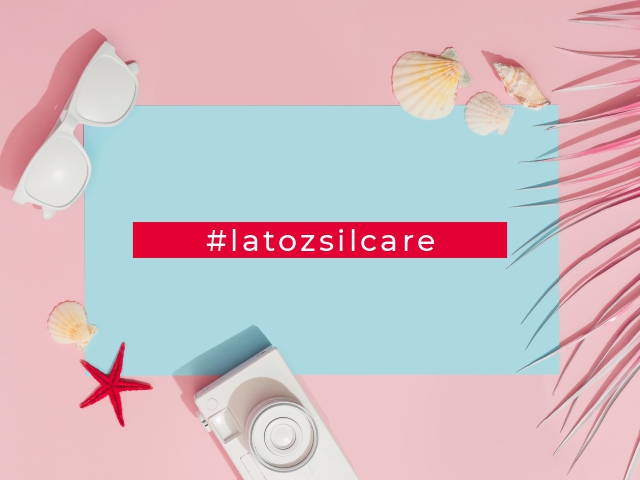#summerwithsilcare – How to Effectively Protect the Skin From the Sun?


Protection against the harmful effects of UV radiation is a subject that is discussed every year, right before summer vacation. We keep on hearing about photoaging and skin cancer prevention, however, are we really conscious how sun affects our cells and how to effectively protect ourselves against its negative effects?
We should start this post with information that the sun itself isn’t harmful. A daily, 15-minute long exposition to sunlight helps us maintain the appropriate level of vitamin D in the body, which is crucial for the people of our country, because studies show that as many as 90% of Poles suffers from its deficiency. It’s a serious health problem, which can manifest itself with fatigue, decreased immunity, muscle pain and insomnia, and even depression disorders. Nevertheless, we should be reasonable and careful when it comes to both sun bathing and sunbed tanning.
Sunscreens – what do they protect against and what are their types?
The basic sun protection products are creams with SPF (Sun Protection Factor). Their role is to reflect UVA rays (that reach the dermis and cause sun allergy as well as photoaging) and UVB rays (that tan the skin and cause sunburns). Even though sun lotions with an SPF of 5 to 15 are the most popular ones, it should be remembered that such low ratings may not protect a skin that is sensitive and fair against sunburns, so it’s worth to choose products with a rating between 30 and 50+.
Another issue are the sunscreens’ compositions. We divide them into those that reflect the rays thanks to the chemical substances contained in the products, and those which own this property thanks to mineral substances. The first group includes a large majority of the most popular drugstore products. Unfortunately, they contain a lot of harmful substances, like oxybenzone, avobenzone, octisalate, octocrylene or homosalate. The studies prove that the above mentioned substances can penetrate the skin and enter the cells of our bodies and, when used frequently, they can cause hormone disruption [1]. The second group of creams contains physical filters based on zinc oxide and titanium dioxide. Their advantage lays in the fact that they stay on the surface of the skin, and therefore they are healthier for our bodies.
Natural alternatives – are they effective?
The ones cherishing the natural methods of caring for the health and beauty are most likely wondering if there are any alternatives to creams with filter. The answer is: no. However, there are natural substances that can support sun protection, and at the same time, care for the condition of our skin. We are mainly talking about oils that contain a natural SPF filter. Among them, we should first mention the raspberry seed oil (SPF 28-50). The second one worth mentioning is the carrot seed oil (SPF 38-40). So, if they contain a natural filter, then why can’t they be an alternative to traditional sunscreens? The problem is that these substances aren’t tested for photostability, which means that their particles can decompose when exposed to UV radiation. Their level of SPF also depends on the oil’s quality, method of its extraction as well as the amount that was applied to the skin. Nevertheless, it is worth using them, because they complement the sun protection and provide great nutritional value.
Protect yourself from the inside
Not everyone knows that we can support UV protection of the skin from the inside, too. Before we go on our vacation, it’s a good idea to increase the consumption of products that contain lycopene and beta-carotene – these organic compounds protect the skin against the harmful effects of sun rays and strengthen it from the inside as well as simultaneously improve its circulation and color. The main source of these carotenoids are tomatoes and carrots; hence it is recommended to consume as much of these vegetables as possible during summer – their form does not matter, they can be eaten raw or either as a soup, juice or sauce.
The amount of time that we can spend on the sun mainly depends on our age, health, skin type and medications that we take. It does not matter whether we plan to tan ourselves golden or only take short, health-improving sunbaths. What matters is that we should provide ourselves with an effective UV protection.
We strongly hope that the above advice will help you choose the best products, which will let you enjoy even a longer sunbathing session on the beach without redness and irritation this year, and that your skin will stay healthy and well-cared-for!
[1] https://www.ncbi.nlm.nih.gov/pmc/articles/PMC5615097/
